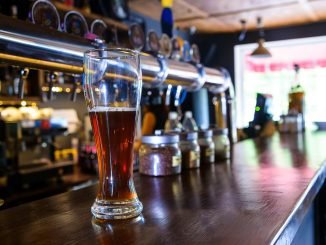
Nairobi, Kenya | By Michael Wandati | Kenyans may soon be able to enjoy traditional alcoholic beverages without fear of legal repercussions if the Alcoholic Drinks (Amendment) Bill, 2024, currently before the Senate, is passed.
The Bill, introduced by nominated Senator Raphael Chimera, seeks to decriminalize the sale and consumption of local brews such as Muratina, Busaa, and Mnazi.
Chimera’s proposal aims to amend the existing alcoholic drinks control law, which currently mandates that individuals selling traditional brews must possess a license.
Additionally, the Bill proposes replacing the smallest legal bottle size of any alcoholic beverage from 250ml to 750ml.
According to Chimera, increasing the minimum bottle size would help reduce the prevalence of alcoholism among the youth. He believes that by making alcohol less accessible, the focus will shift from drinking as a way to escape problems or cope with depression to drinking primarily in social settings.
“The main reason we are limiting packaging to 750 ml is to dissuade many Kenyans from having access quotas and alcohol packaged in sachets and in smaller quantities so that it is not readily affordable so that a Kenyan who wants to enjoy alcohol will have access very safe and quality liquor.
That is the idea around keeping it 750ml so that we are able to eradicate what we call Kayole industries that are known to imitate and produce many bottles of quotas and the likes into the market,” Chimera said.
Senator Raphael Chimera argues that traditional brews such as Muratina, Busaa, and Mnazi have minimal negative effects and are primarily used to celebrate cultural events in rural areas.
He advocates for removing the licensing requirement, allowing individuals involved in the local brewing business to operate without fear of arrest.
Also Read: Waragi distillation drum explosion kills at least one in Rwampara
Chimera highlights how neighboring countries have embraced their local drinks, referencing Uganda’s Waragi and Tanzania’s Konyagi, both of which are legally recognized and widely consumed. In contrast, he notes, Kenya has placed numerous restrictions on its local brewing industry, limiting its growth.
The Senator also pointed out that government campaigns against illicit brews have often negatively impacted young people, with some brands being completely wiped out.
Chimera believes that easing restrictions on traditional brews will support local culture and reduce the negative effects of excessive regulation on the industry.



